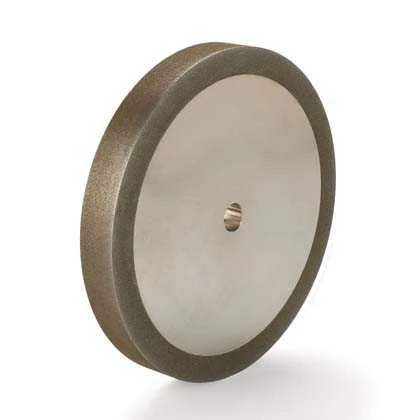How to Choose Between CBN Grinding Wheel or Diamond Grinding Wheel
Grinding wheels are essential tools in various industries for precision cutting, shaping, and finishing of materials. Two popular options for grinding wheels are CBN (cubic boron nitride) and diamond grinding wheels. Both offer distinct advantages and are suitable for different applications. In this article, we will discuss how to choose between CBN grinding wheels and diamond grinding wheels.
CBN Grinding Wheels:
CBN grinding wheels are made with cubic boron nitride, a synthetic material that is second only to diamond in hardness. They are known for their exceptional durability, heat resistance, and ability to maintain their shape during prolonged use. CBN wheels are commonly used for grinding hard ferrous materials such as high-speed steel, tool steel, and cast iron.
Advantages of CBN Grinding Wheels:
1. Hardness: CBN wheels are extremely hard, making them ideal for grinding materials that would quickly wear down other types of grinding wheels.
2. Heat Resistance: CBN wheels have excellent heat resistance, allowing for high-speed grinding without the risk of overheating and damaging the workpiece.
3. Longevity: CBN wheels have a longer lifespan compared to other grinding wheels, reducing the need for frequent wheel replacements.
4. Versatility: CBN wheels can be used for both wet and dry grinding applications, offering flexibility in various work environments.
5. Cost-Effective: While CBN wheels may have a higher upfront cost compared to other grinding wheels, their longevity and efficiency make them a cost-effective investment in the long run.
Diamond Grinding Wheels:
Diamond grinding wheels are made with synthetic diamonds, which are the hardest naturally occurring substance on earth. They are known for their exceptional hardness, abrasive strength, and precision. Diamond wheels are commonly used for grinding non-ferrous materials such as glass, ceramics, and carbides.
Advantages of Diamond Grinding Wheels:
1. Hardness: Diamond wheels are the hardest grinding wheels available, making them suitable for grinding materials that require high precision and a smooth finish.
2. Versatility: Diamond wheels can be used for grinding a wide range of materials, including non-metallic substances like glass and ceramics.
3. Abrasive Strength: Diamond wheels have superior abrasive strength, allowing for faster material removal and reducing grinding time.
4. Precision: Diamond wheels offer exceptional precision and can produce highly accurate shapes and profiles.
5. Clean Grinding: Diamond wheels generate minimal heat during grinding, reducing the risk of thermal damage to the workpiece.
Choosing the Right Grinding Wheel:
When deciding between CBN grinding wheels and diamond grinding wheels, consider the following factors:
1. Material: Determine the type of material you will be grinding. CBN wheels are ideal for ferrous materials, while diamond wheels are better suited for non-ferrous materials.
2. Application: Consider the specific application, such as surface grinding, cylindrical grinding, or tool and cutter grinding. Each type of wheel may have advantages in different grinding processes.
3. Budget: Evaluate your budget and factor in the initial cost and long-term cost-effectiveness of each type of wheel.
4. Speed and Heat: If your grinding process requires high speeds and generates significant heat, CBN wheels may be a better choice due to their excellent heat resistance.
In conclusion, choosing between CBN grinding wheels and diamond grinding wheels depends on the material, application, budget, and speed/heat requirements. Both types of wheels offer unique advantages and are suitable for various grinding tasks. Carefully assess your needs and consult with experts to make an informed decision that will maximize efficiency and productivity in your grinding operations.
.webp)
